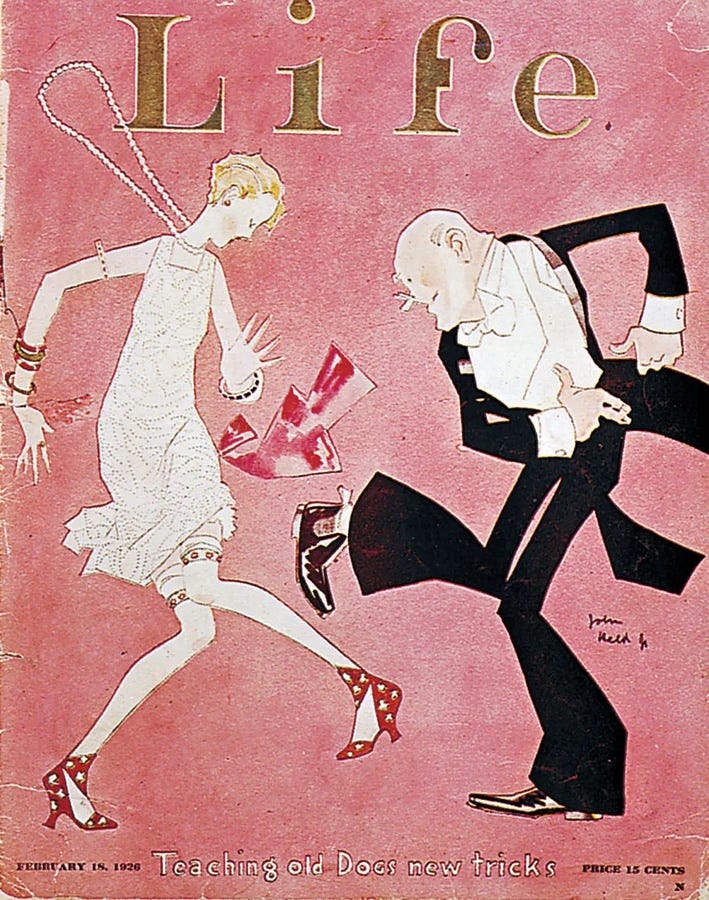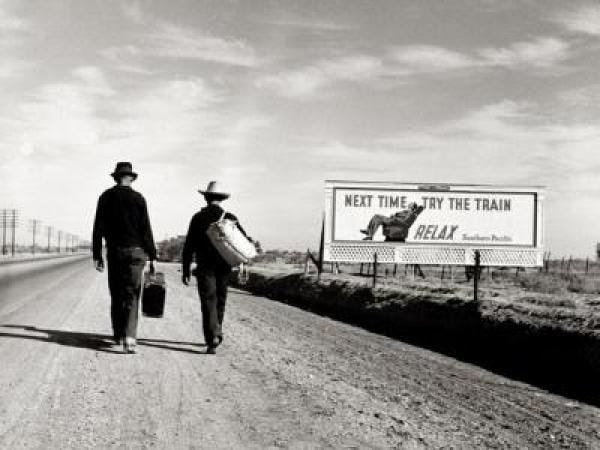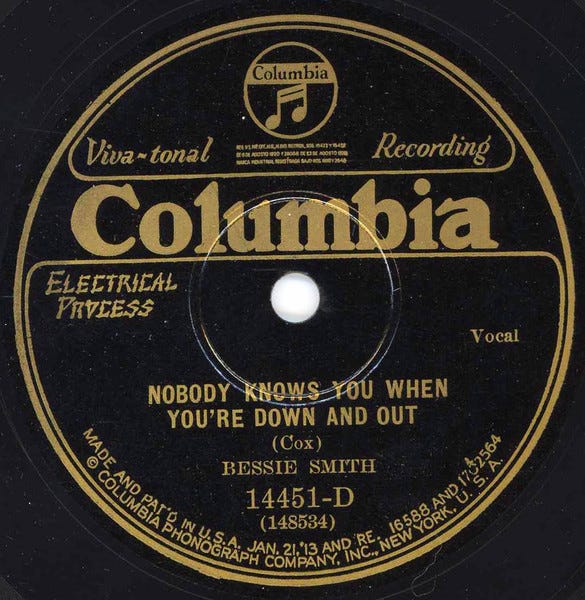The Roarin’ Twenties were in full swing and the stock market was reaching new record highs a hundred years ago when vaudevillian Jimmy Cox wrote his cautionary tale about the fickleness of fortune and friendship.
“Nobody Knows You When You're Down and Out" was copyrighted in 1923, but it was another four years before the first known publication appeared, with the 1927 recording by a little known jazzman named Bobby Leecan.
Two others — an obscure vocal quartet called The Aunt Jemima Novelty Four and boogie-woogie pianist Pinetop Smith — also gave it a spin, but it was Bessie Smith’s rendition in 1929 that made the song legendary.
Predicting the Future
As noted here earlier, Smith’s treatment of the tune also was oddly prophetic.
Columbia released Smith’s record on Sept. 13, 1929. Two weeks earlier, The New York stock market had reached an all-time high; two weeks later, it took its most perilous plunge, beginning 10 years of The Great Depression. No song ever seemed more stunningly relevant than this one.
"Nobody Knows You When You're Down and Out" became one of Smith’s biggest hits. In fact, the song was so identified with “The Empress of the Blues” that for another generation or so other female singers were reluctant to record it.
By the 1950s, though, it was a blues standard. A version by Nina Simone reached No. 23 on Billboard’s R&B charts. Odetta tackled it. So did Janis Joplin.
Men also found the song a great vehicle. Louis Jordan and Josh White both had versions. So did Lead Belly and Eric Von Schmidt, Chad Mitchell, Otis Redding and Sam Cooke.
The Brit Bit
Meanwhile, in English, when Eric Clapton was an art student in the early 1960s, he was attracted to the finger-picking acoustic guitar-stylings of bluesman Big Bill Broonzy. "Nobody Knows You When You're Down and Out" was one of the first songs Clapton learned to play that way.
In 1970, he recorded a group version with his band Derek and the Dominos for the debut album Layla and Other Assorted Love Songs. (Also on that album, incidentally, on slide guitar, was Duane Allman, who also recorded the song with his brother Greg.)
Our Take on the Tune
Some nights are just magical, when everything we do — even this hundred-year-old song — seems suddenly fresh and new.




















Share this post